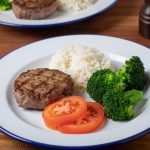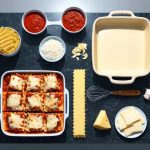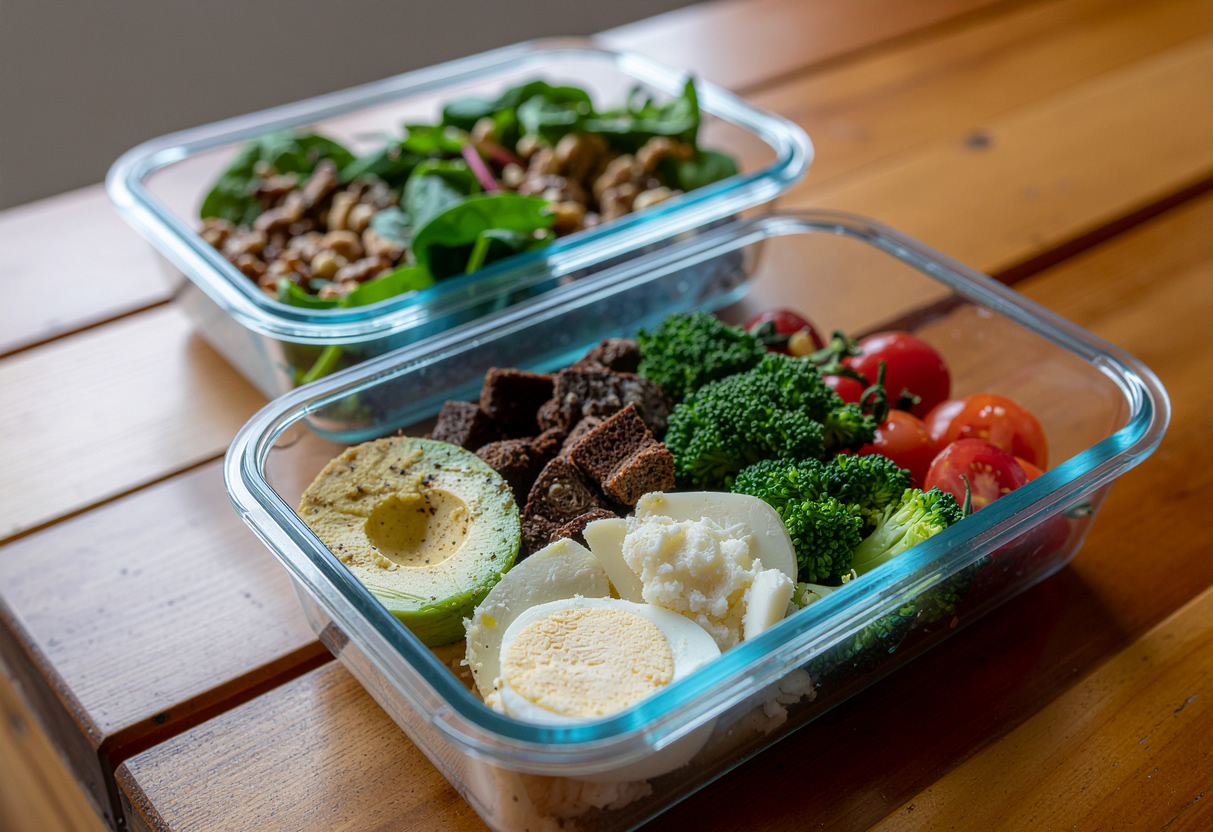
Satisfying Dinners for Portion Control
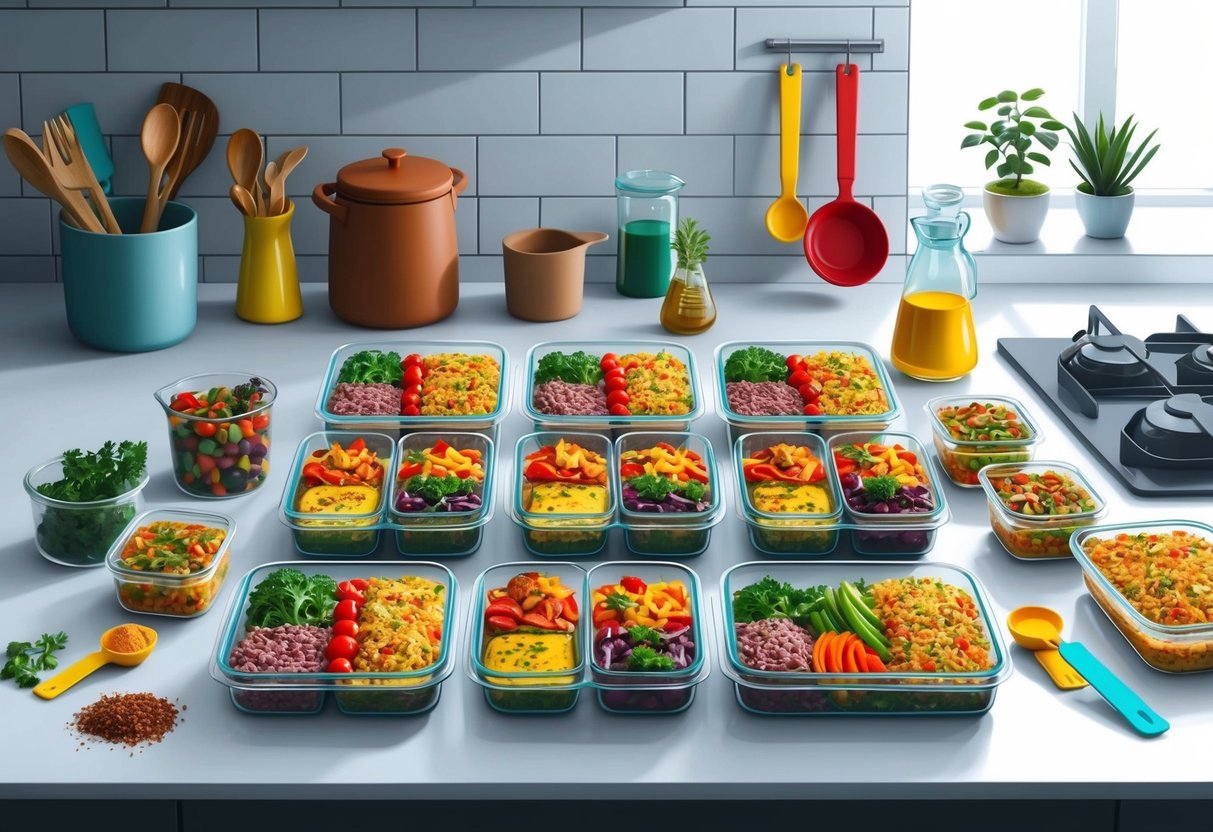
Choosing balanced, nutrient-rich dinners is key to successful weight management. Focusing on lean proteins and plant-based ingredients can offer heart health benefits and keep calorie intake in check.
Lean Seafood and Chicken Meals
Seafood and skinless chicken breast are excellent protein sources for low-calorie, satisfying dinners. Grilled salmon, tilapia, or shrimp provide heart-healthy omega-3 fatty acids and pair well with steamed vegetables and whole grains.
According to several healthy meal prep recipes, a serving size of 3-4 ounces of cooked fish or chicken helps maintain portion control while supporting muscle repair and fullness.
Quick meal prep ideas include:
- Baked cod with lemon and dill served alongside roasted asparagus
- Grilled chicken breast with quinoa and broccoli
- Shrimp stir-fry with mixed vegetables over brown rice
For easier portion management, use divided meal prep containers to separate protein, veggies, and grains. This approach visually reinforces balanced eating and supports weight loss efforts.
Flavorful Vegan and Vegetarian Options
Vegetarian meal prep can be equally satisfying when focused on nutrients and flavor. Dishes like lentil curry, chickpea salad, and tofu stir-fries deliver plant protein and fiber, supporting fullness and digestive health.
For portion control, aim to fill half the plate with vegetables, one-quarter with whole grains, and one-quarter with a protein source.
Table: Sample Vegan Dinner Portions
| Protein | Grain/Carb | Vegetable |
|---|---|---|
| 1 cup lentils | ½ cup brown rice | 1 cup spinach |
| 1 cup tofu stir-fry | ½ cup quinoa | 1 cup mixed veggies |
Batch-prepping meals like quinoa salad or vegetable chili provides ready-to-eat dinners that are calorie-conscious and nutrient-dense. For more prep ideas tailored for weight loss, check out easy meal prep recipes.
Nutritious Snack and Dessert Prep
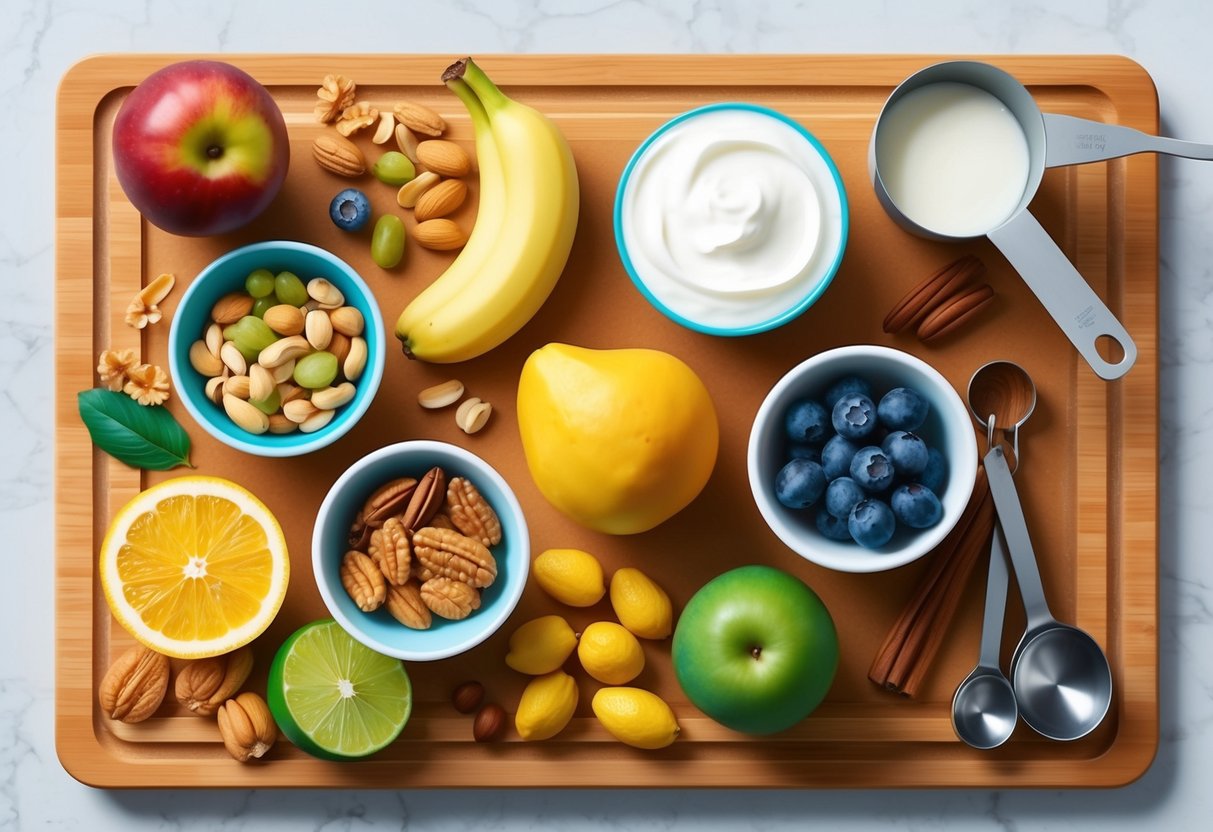
A balanced approach to meal prep for weight loss includes nutritious snacks and satisfying desserts that support portion control. Choosing high-fiber, protein-rich options can help manage hunger and prevent overeating at meals.
Easy Healthy Snacks
Healthy snacks are essential for keeping energy levels steady throughout the day. Pre-portioning mixed nuts into small containers provides a blend of protein and healthy fats, which help control cravings.
Fresh fruit like apple slices, berries, or orange segments offer natural sweetness and important vitamins. Vegetable sticks, such as carrots, cucumbers, and bell peppers, pair well with hummus or low-fat yogurt dip for extra flavor and protein.
Greek yogurt cups topped with a few chopped nuts or sliced fruit are easy to prepare ahead of time and offer calcium and probiotics. Egg muffins made with vegetables and a little cheese can be baked in advance and stored in the fridge for quick, high-protein bites.
For more ideas, explore healthy snack prep recipes that are both easy to assemble and dietitian-approved.
Homemade Cookies and Treats
Homemade cookies can be part of a weight loss meal plan when prepared with mindful ingredients and portion sizes. Swapping white flour for whole wheat flour boosts fiber content, while using mashed banana or applesauce instead of butter can cut down on saturated fat.
Oatmeal-based cookies with add-ins such as chopped nuts, raisins, or dark chocolate chips provide energy without excessive sugar. Creating energy bites with oats, nut butter, and seeds makes for nutrient-dense treats that can be stored in the fridge for grab-and-go snacks.
Baking in small batches and dividing cookies into single-serve containers helps manage portions and reduces temptation. For inspiration, browse healthy meal prep ideas that include balanced treats and desserts.
Expert Tips and Modifications for Success
Meal prepping for weight loss is most effective when the approach fits the individual’s needs. Adjusting recipes and consulting with professionals helps maximize health benefits, prevent nutrient deficiencies, and support sustainable habits.
Customizing Meal Prep for Dietary Needs
Not all meal prep strategies work the same for everyone. People with food allergies, intolerances, or specific health conditions should modify recipes to avoid triggers while still supporting weight loss goals.
For example, those sensitive to gluten can swap regular grains for quinoa or brown rice. Individuals seeking high-protein options can add boiled eggs, lean meats, or plant-based proteins like lentils and edamame.
Using portion control containers or digital food scales can offer precise calorie and macronutrient tracking. Measuring ingredients ensures meals are balanced and align with goals.
For those who follow plant-based, keto, or low-sodium diets, there are many simple meal prep ideas tailored to these needs. Adjusting spices, sauces, or cooking methods, such as grilling instead of frying, allows for even healthier outcomes.
Making use of ingredient substitutions and altering serving sizes are both common modifications. Keeping a short list of favorite, versatile ingredients reduces waste and saves time.
Monitoring energy levels and how the body responds after meals can guide further customizations.
When to Consult With Registered Dietitians
Registered dietitians are trained to tailor nutrition advice to individual needs, especially if a person has complex health issues or is struggling to reach goals. Those with diabetes, heart conditions, or gastrointestinal disorders may require specific macronutrient tweaks that only an expert can safely recommend.
A dietitian can analyze food journals, review lab results, and provide recipe modifications for enhanced health benefits. For instance, they help identify nutrient gaps and recommend fortified foods or supplements as needed.
Dietitians also offer guidance on structuring meal prep timelines based on work or family schedules. Anyone considering significant dietary changes, such as going vegan, cutting out entire food groups, or using weight loss supplements, should seek professional input.
This minimizes risks and enhances long-term results. Connecting with a registered dietitian can also help manage emotional or behavioral barriers to healthy eating and set realistic, measurable goals for progress.

